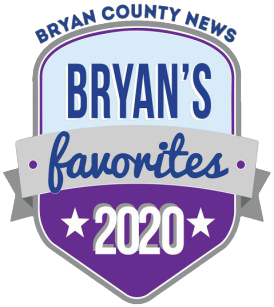Frequently Asked Questions
Why does seeing a pediatric dentist matter?
Pediatric dentists are the pediatricians of dentistry. After dental school, pediatric dentists complete two to three years of specialized training focused exclusively on infants, children and adolescents, including those with special needs. Pediatric dentists have more training on things such as behavior management, growth and development and orthodontics.
Do baby teeth really matter?
 More than you know! Baby teeth help children speak clearly, chew naturally and create a path that permanent teeth can follow when they erupt. Starting at birth, gently clean the gums with a soft infant toothbrush or cloth and water. Help prevent decay by avoiding nursing children to sleep or putting anything other than water in their bedtime bottle.
More than you know! Baby teeth help children speak clearly, chew naturally and create a path that permanent teeth can follow when they erupt. Starting at birth, gently clean the gums with a soft infant toothbrush or cloth and water. Help prevent decay by avoiding nursing children to sleep or putting anything other than water in their bedtime bottle.
When should I start using a flouride toothpaste?
Never use a non-fluoride toothpaste. The American Academy of Pediatrics (AAP) and the(AAPD) recommend using a regular children’s fluoride toothpaste as soon as the teeth begin to appear. Start brushing twice daily with fluoride toothpaste and a soft, infant-sized toothbrush. For children 24 months and under, use a rice grain- size of toothpaste. For 3-6 year olds, use a pea-size amount of toothpaste. Brush for them or assist to ensure effective brushing.
Do you offer white fillings and crown?
Yes! All of our fillings are tooth colored, which means they look great and contain no mercury! Also, we offer zirconia crowns, which are also tooth colored.
Are pacifier or thumb-sucking habits harmful?
Generally, not. Thumb or pacifier sucking are habits children usually outgrow on their own. Past age three, your dentist might recommend a mouth appliance.
Anxiety relief (Anxiolysis) and Sedation
Are anxiety medications and laughing gas safe?
What is oral conscious sedation?
How does IV sedation work?
General Anesthesia / Hospital Dentistry
Emergencies
What should I do if my child falls and hurts their teeth?
A fall can be overwhelming for both parent and child. It can be a very emotional time with lots of tears. Your child will benefit from their parent staying calm. If your child lost consciousness, go to the emergency room first. Depending on the situation there may be fractured teeth or bleeding. If you are a patient of record please call the office to see if your child should be examined and have radiographs made.
In the minutes after the fall, pressure can be applied to bleeding gums to slow the blood. A cold pack may be applied to help soothe the area and developing swelling. If a baby tooth was pushed out during the accident, then it should be left out. If it is a permanent tooth, call the office right away. Try to place the tooth back into the socket. If that is not possible it can be stored under the child’s tongue or next to their cheek until they get to the office. Washing or scrubbing the tooth should be avoided
My child had treatment today. Why is their lip swelling?
It is common for younger patients to chew, suck, or scratch at their lip after their procedure, while still numb. It can happen in a few quick seconds. You may be able to see white bite marks on the lip or cheek. The area may become very swollen. It is hard for young children to understand what numb means and that it will eventually go away. They will benefit from a soft bland diet for a few days. It takes about a week for healing. Please call the office if you have concerns about a lip/cheek bite.
Office 912-715-SURF (7873)
Fax 912-717-9595
Email info@surfsidekids.com
Patient Hours:
Mon–Fri: 7am–2pm
Office Hours:
Mon-Thur: 8am-5pm
Fri: 8am-3pm
Sat & Sun: Closed
Richmond Hill
135 Cedar Street
Richmond Hill, GA 31324
Hinesville
103 East General Stewart Way
Hinesville, GA 31313
Brunswick
4850 Altama Avenue
Brunswick, GA 31520
Veteran-Owned Business










